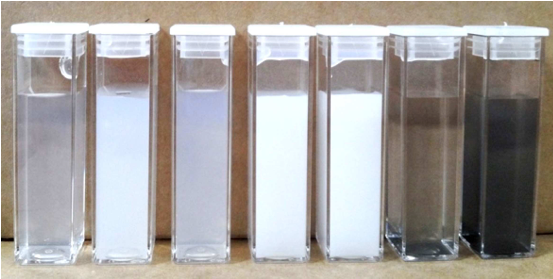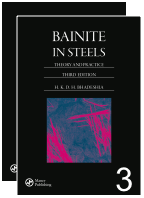

Fluids containing particles that are small enough to remain in suspension over prolonged periods of time sometimes exhibit exceptional thermal properties. While considerable work has been reported on such mixtures based on oxides, inert powders and non-corrosive fluids, the present work explores the stability and thermal conductivity of mixtures of fine particles of stainless steel and pure water. In particular, aspects of sedimentation and the ability to obtain dispersals of particles with the fluid and avoid agglomeration were studied. Amongst the parameters studied, it is found that controlling the hydrogen ion concentration helps to stabilise the mixtures more than the addition of surfactants in case of 0.017 wt% stainless steel-water fluids. This is important in obtaining ζ-potentials that are large enough to sustain a significant repulsion between like particles in the fluid. The work forms the foundation of future studies on the properties of such mixtures, especially for heavy metallic particles. For 0.017 wt% stainless steel-distilled water nanoparticle-fluid, the thermal conductivity increases by 8.3% at the optimal stability condition of pH 11.
Powder Technology 272 (2015) 34-44.

| Hydrogen TWIP | Nuclear growth | Maraging steel | Bearings |  |
| Tempering nanostructures | TRIP multipass welds | Bainitic powder | Shear instabilities | |
| Surface displacements | Broken bainite | Bearing steel | Percolation |
| PT Group Home | Materials Algorithms |